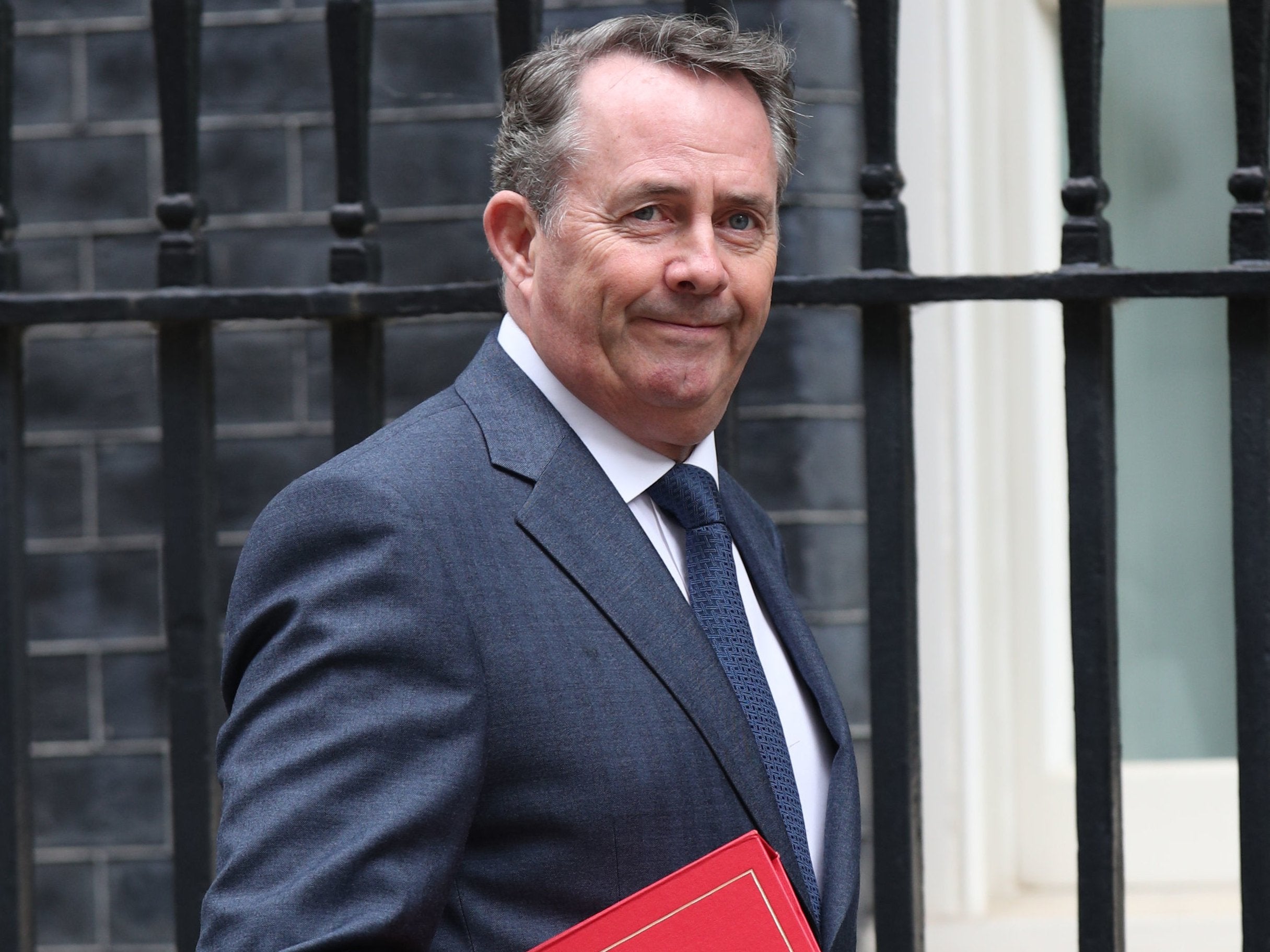Liam Fox's Brexit trade bill set to crush disabled people
As it stands, ministers would have the right to tear up the human rights of disabled people to facilitate trade deals the President of the CBI says will be of no benefit to Britain

Your support helps us to tell the story
From reproductive rights to climate change to Big Tech, The Independent is on the ground when the story is developing. Whether it's investigating the financials of Elon Musk's pro-Trump PAC or producing our latest documentary, 'The A Word', which shines a light on the American women fighting for reproductive rights, we know how important it is to parse out the facts from the messaging.
At such a critical moment in US history, we need reporters on the ground. Your donation allows us to keep sending journalists to speak to both sides of the story.
The Independent is trusted by Americans across the entire political spectrum. And unlike many other quality news outlets, we choose not to lock Americans out of our reporting and analysis with paywalls. We believe quality journalism should be available to everyone, paid for by those who can afford it.
Your support makes all the difference.An inevitable consequence of a Brexit run by the Conservative Party is that the interests of society’s most vulnerable people are being trampled upon in an unprecedented manner
The latest example of that happening comes courtesy of the Trade Bill that will be debated on the floor of the House of Commons tomorrow.
It is designed to take some 40 trade agreements signed by the EU with third countries and place them into UK law. This act of housekeeping, however, comes with an extraordinarily nasty sting in the tail if, like me, you are among the estimated 20 per cent or so of Britons who have a disability.
According to a letter sent to the International Trade Secretary Liam Fox, the bill “lets ministers change a wide range of laws – including the Equality Act – without parliamentary scrutiny, in order to implement international trade agreements”.
It continues: “There are no safeguards to prevent ministers from using these new powers to remove rights granted by Parliament.”
Its 20 signatories include Liberty, the Business Disability Forum, Disability Rights UK, Leonard Cheshire Disability, Mencap, The National Aids Trust, the Royal National Institute for the Blind, Amnesty International UK, Ambitious About Autism and the Association of Chief Executives of Voluntary Organisations.
They and their co signatories warn that the powers granted by the bill could lead to some apallingly malign outcomes. One example they highlight is that it could be used to change those parts of the Equality Act that require public vehicles to be made accessible to disabled people.
This is important because people with disabilities rely far more on public transport than non disabled people do for access to leisures facilities, local services, shops and the like. Of no less importance is the critical role accessible public transport plays in their ability to work. The Government still claims that its desire is to get 1m or so more disabled people into work. That’s not going to happen if they aren’t able to get to places of employment.
“Such broad powers have not been and cannot be justified to achieve the Bill’s stated aim of rolling over existing trade agreements the UK has through our membership of the EU,” the signatories say, while urging a commitment to change the text of the bill to protect human rights and equality laws.
Given the quality of the man in post as International Trade Secretary, whom it bears repeating is a doctor by training, it is hard to see that happening.
This is what Paul Drechsler, President of the the CBI, said on the subject of the trade deals Mr Fox’s Department was set up to negotiate: “There’s zero evidence that independent trade deals will provide any economic benefit to the UK that’s material. It’s a myth.”
For the record, the Department for International Trade insists that the continuity powers in the trade bill won’t be able to be used without Parliamentary scrutiny and says that it has held discussions with the with the Equalities & Human Rights Commission about the bill. However, if all is hunky dory, why would 20 respectable organisations feel sufficient concern to write? Perhaps it’s a reflection of the Government’s lamentable record on disability.
Depressingly, this has so far received little in the way of publicity. Perhaps that is partly because there is now just so much evidence of the desire on the part of the right wing of the Conservative Party to turn the Brexit wound septic.
Join our commenting forum
Join thought-provoking conversations, follow other Independent readers and see their replies
Comments